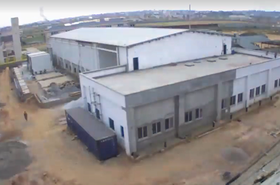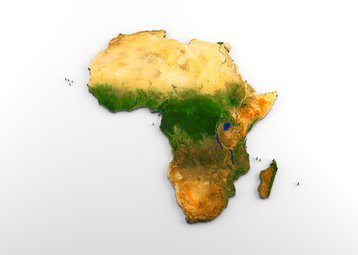As always, big questions spawn complicated answers. This time was no different.
So, let’s start simple. Africa’s population is growing. More people equals more opportunities for business and more demand. But when considering an entire continent, it is never this easy.
“Telecommunications companies have had to get connectivity across the continent; south to north, east to west, which deepens broadband penetration and enables the consumption of content and, in turn, drives cloud computing.” Ayotunde Coker is CEO of Rack Centre, based in Nigeria.
“If you get the business model right, you can really hit the sweet spot of scale in Africa. The example I give is what I call the ‘sachet’ economy. The ideal scale in Africa is to be able to give a better business model that can efficiently deliver small sachets of product. Spending patterns across the continent are generally that you earn your money today to spend tomorrow - so you use your data as you go. You have got to be able to deliver that scale efficiently. The analogy for data centers is cloud technologies - we are finding that delivering small sachets of computing requirements for ERPs or other content consumption is growing significantly in Africa.”
For now, broadband penetration across the continent is limited but progressing. After South Africa, the leading countries are Nigeria with 45 percent, and Kenya at 40 percent.
Funke Opeke, the founder and CEO of MainOne acknowledges this. “I truly believe that when you look at demand, Sub-Saharan Africa remains the last frontier for expansion of broadband access, internet access, and digital transformation.”
The demand has been growing over the last decade - following a similar path to industry development across the globe, as content consumption becomes more of a priority. It would, however, be foolish to disregard the chaos of the last year and a half. Africa, too, has been impacted by the unprecedented pandemic, driving an explosion in consumption and data needs.
“Africa’s median age right now is 20 years of age, compared to that of Europe which is 44, and the US at 38.
We are looking at a massive market that is going to be available in the next 10 years.” There is a beauty to be found in what Niraj Shah of IXAfrica describes as the comparative infancy of the industry in Africa.
It leaves the industry open to be molded in a way that revolutionizes the running of data centers.
For this to happen, there needs to be collaboration at every level. Industries must come together to invest in connectivity across Africa, from telecoms to governmental organizations, and to engineers. While in Europe, if building a data center, the infrastructure supply chain is generally around the corner. Whereas, when building a data center in Africa it is necessary to get stock and possibly even assistance from Europe, Asia, or the US. There is an undeniable need to develop local infrastructure. We must put ‘businesses’ behind us, and work as an industry.
Africa’s data center industry is still in the stages of development, and while there will be the natural complications that come with growing pains, there shouldn’t be concern over capability.
Opeke was firm in her stance. “Africa has a lot of latent talent - I’m not worried about the talent. I believe ultimately Africa will have to lead the global market with talent” and as a result, there is no doubt that we can expect to see exciting things happening in the years to come.
Listen to the broadcast series here
See more...
-

Africa Data Centres announces $500m goal to build 10 data centers
Company aims to double its footprint over the next two years
-

Raxio appoints Master Power to build multiple data centers across Africa
South African firm helping Raxio deliver its facilities
-

Teraco completes JB3 data center on Isando campus, Johannesburg
29MW more capacity in South Africa's largest city


